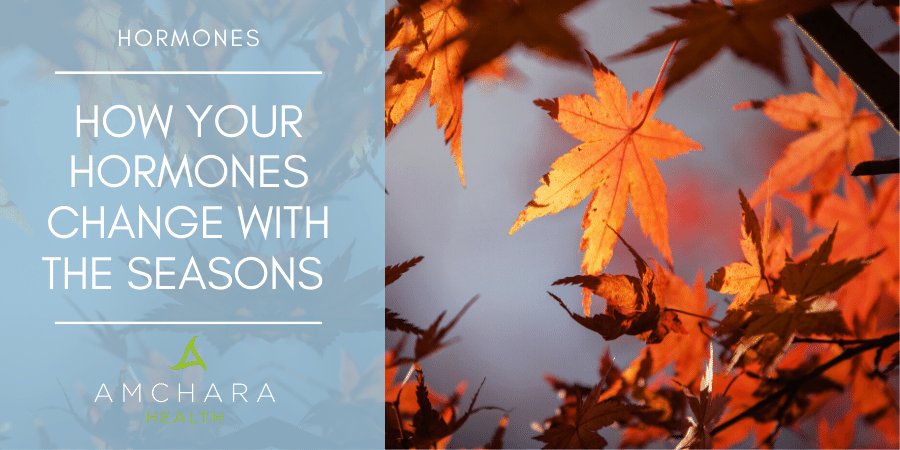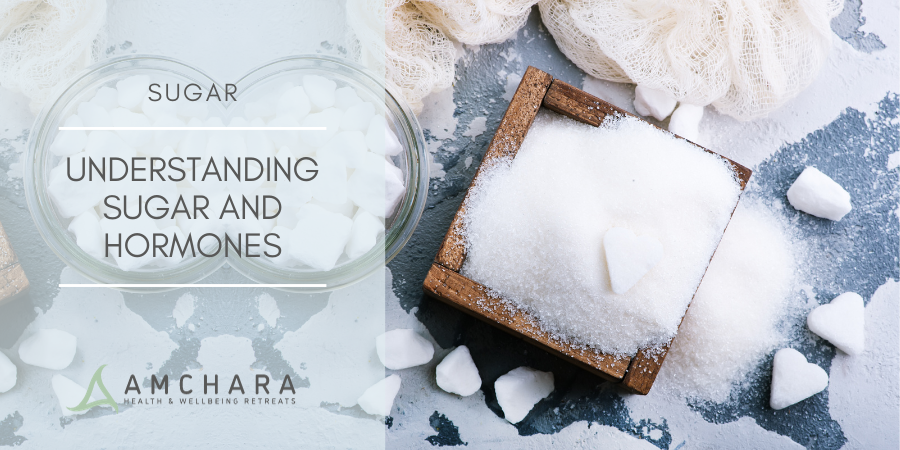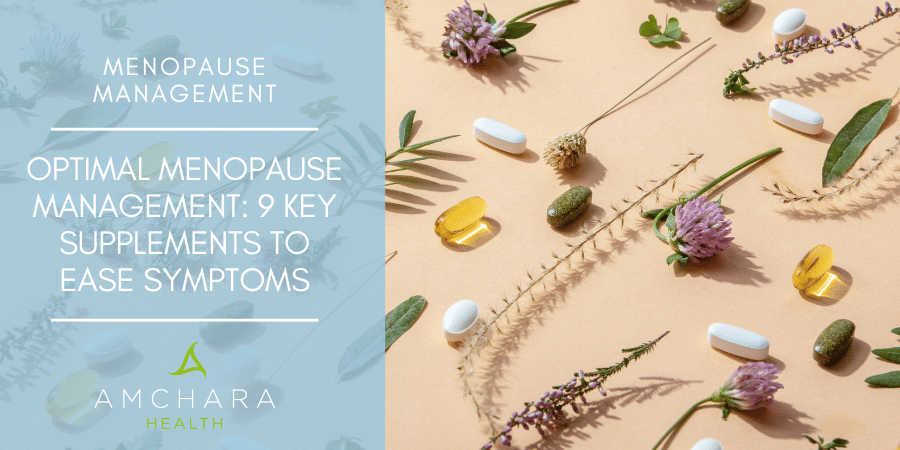As winter approaches, does your mood plummet? When the weather cools, do you become lethargic, irritable or generally off-colour? Have you ever considered this may be due to hormone alterations related to the seasons?
We always take an evidence-based approach and aim to provide you with actionable knowledge and tips to help you on your journey to optimal health. In this article we’ll have a look at how your hormones can be affected by the temperature as well as the seasons, and how you can support healthy hormone balance with simple lifestyle strategies.
What are hormones?
Your hormones are chemical messengers which travel around your bloodstream and tell your body what to do, as well as how to feel. Your mood and motivation are as influenced by your hormone levels as your digestive and reproductive systems.
Let there be light
One major factor that affects you when the evenings turn darker earlier is the lack of light, especially direct sunlight. It’s believed before the advent of electric light, our ancestors would have slept longer in the winters, and even nowadays with artificial light surrounding us, we may still need slightly more sleep when the nights are longer.
It’s well known that light has a positive effect on mood. Many people perceive their mood and energy levels being affected by changes in the seasons. For some, this can be extreme and develop into seasonal affective disorder (SAD), which is clinical depression arising only at certain times of the year.
Seasonal sex hormones
Researchers have noted women who tend to suffer with premenstrual symptoms generally feel better in the summer than they do in the winter.
Scientific knowledge supports the idea that our hormonal picture changes according to the seasons. Research has discovered sunshine increases levels of follicle stimulating hormone (FSH), which causes an egg to develop. This means women may not ovulate as frequently during the winter, so menstrual cycles may be longer and PMS symptoms worse. This is because when a woman doesn’t ovulate, insufficient progesterone is released and oestrogen may climb too high in the latter half of the month. In one study, cycles were shorter by almost one day during the summer (1).
Men typically produce less testosterone during the winter months, so their libido will be lower during cold weather.
Research has also found our receptors for oestrogen are more sensitive in the summer. Low oestrogen, or a reduced sensitivity to the hormone, can cause problems with ovulation and therefore reduced fertility. This would have made sense when we were dwelling in caves as it would have meant women were more likely to conceive when the weather was milder (2).
Low oestrogen can also lead to reduced levels of serotonin, the happy hormone, and can be a cause of poor bone health, dry skin and low mood post-menopause.
Sunshine and hormone balance
There’s a tendency to spend less time outdoors during the winter, resulting in low vitamin D levels for many people. This vitamin is itself a hormone and has a profound effect on the balance of other hormones in the body; it affects our pituitary gland, often called the master gland because of its role in controlling the levels of other hormones.
Less sunshine also means lower levels of dopamine, the brain chemical associated with pleasure and reward. Less dopamine can lead to decreased enthusiasm and drive during the winter.
Research has found exposure to bright light in the morning – which is hard to come by in the UK during the winter – results in higher testosterone levels in men. As for women, morning light was found to increase levels of luteinising hormone, which causes both oestrogen and progesterone to be released in different parts of the menstrual cycle, and triggers ovulation (3).
Thyroid function and the weather
Colder weather causes the pituitary gland to secrete more thyroid stimulating hormone (TSH). This is an attempt to encourage the thyroid gland to release increased amounts of thyroxine, which helps to raise our body temperature in the face of cold temperatures. Secretion of TSH usually reduces again once the weather turns warmer.
This can mean people are misdiagnosed as suffering from hypothyroidism, which is characterised by higher than normal levels of TSH, when actually their hormone levels are simply a response to the outside temperature (4).
Improve your hormone balance through the seasons
Our ancestors lived with the seasons and followed their natural rhythms. They woke when it became light, slept when darkness fell and ate the foods which were available during the season. Nowadays we’ve lost sight of this connection with our natural environment.
Help your hormones to naturally harmonise with the seasons with these lifestyle strategies:
- Sleep is particularly important at this time of year, but it’s often hard to get enough, due to the stress and increased obligations of the season. Aim for a consistent night routine and bedtime as often as you can.
- According to Traditional Chinese Medicine, in winter we should eat warming foods, which will in turn help to harmonise our hormones. These include soups and stews which are delicious made with the colourful vegetables plentiful at this time of the year, such as pumpkin, parsnip and sweet potatoes.
- Spend some time outside. As we’ve seen, light not only encourages the production of sex hormones, but it also increases serotonin levels. This can boost mood and aid sleep by providing the ingredient from which melatonin is manufactured, which helps regulate your sleep/wake cycle. As little as 20-30 minutes outside can have a beneficial effect.
- If your mood is low it can be hard to motivate yourself to spend time in the open air, but the benefits really will be worth it. If you simply can’t go outside, try a light box. These emit the full colour spectrum of natural light wavelengths, so they effectively replicate sunlight. Light boxes have been found to improve mood with regular use.
- Don’t forget to exercise. It’s easy to overlook your exercise regime during the winter, particularly if you naturally gravitate towards exercise which takes you outdoors, such as running. We know exercise affects hormone balance by boosting dopamine levels, serotonin and testosterone and can reduce oestrogen levels when they’re too high.
- Watch your stress levels. This can be a particularly stressful time of the year with competing responsibilities and family commitments. Stress can further disrupt hormone levels by depleting progesterone. Even if you think you don’t have time, as little as just ten minutes set aside for meditation or deep breathing exercises can work wonders.
- As we’ve seen, vitamin D levels can become depleted in the winter months – it’s estimated at least one in five of us in the UK have low levels of this vitamin. Consider taking a supplement, especially when sunshine is scarce.
Takeaway
At this challenging time of year, make sure your hormones have the best chance of being in balance by adopting healthy nutritional and lifestyle strategies.
If you would like support in balancing your hormones, a consultation with an Amchara Personalised Health practitioner will examine in detail your nutritional status, past health history and lifestyle and help you align these with your health goals.
Functional testing can reveal hormone imbalances and once these are identified, strategies can be recommended to naturally bring them back into balance.
Did you find this article useful?
Gaining your insight helps us to help others.
Please share your thoughts in the comments.
Read this next:




